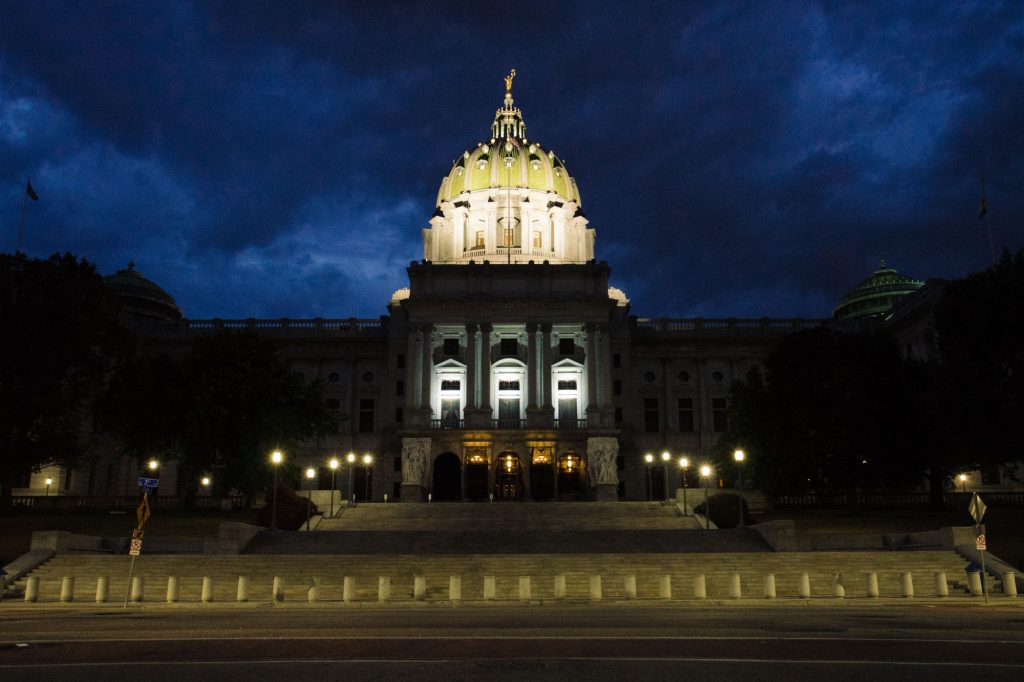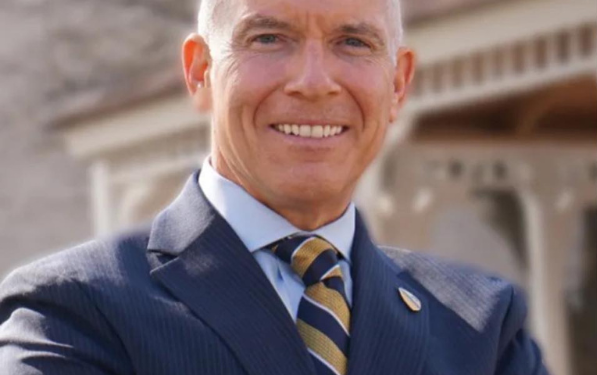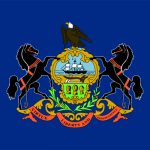by Stephen Caruso of Spotlight PA
Courtesy of Kent M. Wilhelm / Spotlight PA
Spotlight PA is an independent, nonpartisan, and nonprofit newsroom producing investigative and public-service journalism that holds the powerful to account and drives positive change in Pennsylvania. Sign up for our free newsletters.
A new bill aims to slow the speed of the revolving door between public service and private sector lobbying, a threshold state lawmakers and workers often cross once they leave Pennsylvania government.
Current state law bars such officials and employees from lobbying their previous workplaces for a year. The new bill, introduced by state Sen. Kristin Phillips-Hill (R., York) and backed by members of both major parties, would extend that pause by another year.
It passed by the upper chamber’s State Government Committee unanimously Tuesday, with no debate. The bill now goes to the full state Senate for consideration.
“I think we have all seen former members retire and then take lobbying jobs. You know, the list goes on and on,” Phillips-Hill told Spotlight PA. “And I don’t want to denigrate anyone specifically. But I think you can go back and you can look and you can watch as people walk through these hallowed halls and make mental notes yourself.”
Among the hundreds of registered lobbyists who roam the Pennsylvania Capitol are a slew of former Wolf administration officials and top lawmakers from both major parties.
Mike Brunelle, former Democratic Gov. Tom Wolf’s one-time chief of staff, was the marquee hire of GSL Public Strategies Group, a lobbying firm founded in 2022. Seven other top Wolf staffers, as well as former state Sen. John Yudichak, work there for clients such as Google, trade unions, and Energy Transfer LLC — the owner of the Mariner East II pipeline system.
Four former lawmakers — including Republicans Jake Corman, who led the state Senate, and Stan Saylor, who chaired the state House’s powerful budget committee — were hired by One+ Strategies.
The firm was created by former legislative staffer turned Harrisburg hired gun Ray Zaborney. It currently represents dozens of clients, including Norfolk Southern, natural gas driller EQT, numerous health care providers, and the city of Philadelphia.
Joe Scarnati, another Republican who held the top position in the state Senate, founded his own lobbying shop, Allegheny Strategy Partners, in 2021. The firm, which has since hired a former state House lawmaker, represents a number of big-name clients including Amazon, SEPTA, CONSOL Energy, and several water and gas utilities.
Dozens more former state lawmakers, legislative staffers, and executive branch officials have been hired to directly or indirectly represent interest groups in Harrisburg. Alison Beam, who led the Pennsylvania Department of Health under Wolf, was hired to lobby on behalf of the University of Pittsburgh Medical Center, the state’s largest private employer.
Michael Pollack, executive director of the good government group March on Harrisburg, said that policymakers quickly transitioning between public and private employment creates “an absurd corruption dilemma.”
“The revolving door makes officials think not about their current job, but their next job which will pay significantly better and remove them from public scrutiny,” Pollack told Spotlight PA.
Under a state law passed in 1998, former public officials and employees cannot be paid lobbyists for a private group “on any matter before the governmental body with which [they have] been associated” for one year after they leave the public payroll.
In practice, the law gives them a lot of leeway.
A former state House staffer, for example, can lobby senators and their staff immediately, the State Ethics Commission — which enforces the law — wrote in an advisory this year. Former executive branch officials are also allowed to lobby departments they did not work for, and the legislature as a whole, without waiting a year.
The law also does not apply to any former government official who is an attorney because of a 2003 state Supreme Court decision that rejected the legislature’s ability to regulate the legal profession.
Enforcement of the state’s ethics law is complaint-driven, and unless the attorney general files a criminal complaint, the penalties for violating the law are financial.
At least 10 states require a longer break between public service and private lobbying than Pennsylvania, including Alabama, New York, Oklahoma, and Oregon, according to the National Conference of State Legislatures.
Most of those states set the cooling-off period at two years; Florida implemented a six-year break through a constitutional amendment in 2018.
The latter, Pollack said, is closer to his ideal of a five-year gap.
“There needs to be a firewall between public service and private gain,” Pollack said.
BEFORE YOU GO… If you learned something from this article, pay it forward and contribute to Spotlight PA at spotlightpa.org/donate. Spotlight PA is funded by foundations and readers like you who are committed to accountability journalism that gets results.




